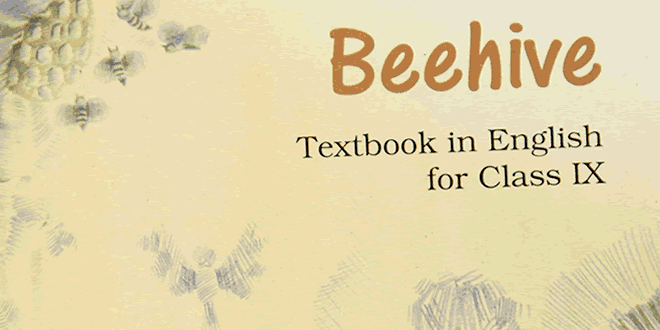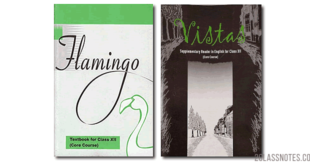Packing: NCERT 9th Class CBSE English Beehive Chapter 07
Question:
- Do you like going on trips? What kind of trips do you enjoy most?
- How do you feel about having to pack for a trip?
- Have you ever discovered on a trip that you have forgotten to pack a few things you very much need, or that you can’t find them easily?
- Does this make you angry or does it make you laugh at yourself?
Answer:
- Yes, I like going on trips. Usually, I enjoy going on adventure trips with my family, where I can participate in water sports or mountaineering.
- For me, packing is the most tiresome and confusing job. However much I try to remember and pack all necessary things, I forget something or the other and get scolded for it.
- Yes, on many of my trips I have discovered to have forgotten my toothbrush, slippers, accessories, etc. back home. At times, I find it difficult to find some particular dress or cosmetic item or matching accessories because of the haphazard way in which I tend to pack my travelling bags.
- Normally, forgetting important things at home makes me angry and cranky.
Page No 89:
Question: Discuss in pairs and answer each question below in a short paragraph (30 – 40 words).
- How many characters are there in the narrative? Name them. (Don’t forget the dog!).
- Why did the narrator (Jerome) volunteer to do the packing?
- How did George and Harris react to this? Did Jerome like their reaction?
- What was Jerome’s real intention when he offered to pack?
- What did Harris say after the bag was shut and strapped? Why do you think he waited till then to ask?
- What “horrible idea” occurred to Jerome a little later?
- Where did Jerome finally find the toothbrush?
- Why did Jerome have to reopen the packed bag?
- What did George and Harris offer to pack and why?
- While packing the hamper, George and Harris do a number of foolish and funny things. Tick the statements that are true.
(i) They started with breaking a cup.
(ii) They also broke a plate.
(iii) They squashed a tomato.
(iv) They trod on the butter.
(v) They stepped on a banana.
(vi) They put things behind them, and couldn’t find them.
(vii) They stepped on things.
(viii) They packed the pictures at the bottom and put heavy things on top.
(ix) They upset almost everything.
(x) They were very good at packing.
Answer:
- There are four characters in the narrative. They are Jerome (the narrator), George, Harris and Montmorency (the dog).
- The narrator volunteered to do the packing as he took pride in himself for his packing skills. It was one of those things that he felt he knew ‘more about than any other person living’.
- George and Harris readily accepted Jerome’s suggestion. George smoked a pipe and ‘spread himself over the easy-chair’, while Harris put his legs on the table and lit a cigar.
No, Jerome did not like their reaction. - When Jerome had offered to pack, his real intention was to boss the job. He wanted to make Harris and George work under his directions, and to push them aside every now and then to teach them how to pack properly.
- After the bag was shut and strapped, Harris mentioned that Jerome had not packed the boots.
- He had waited till then to ask because he wanted to make Jerome realize his mistake and ridicule his so-called expertise at packing.
When Jerome unstrapped the bag to pack the boots in, a ‘horrible idea’ occurred to him. He wondered whether he had packed his toothbrush or not. He was a bit finicky about having his toothbrush packed every time he went on a trip. - Jerome had to make a lot of effort to find his toothbrush. As he had packed everything, he had to rummage through the packed bag to find it. Jerome finally found the toothbrush inside a boot.
- Jerome had to reopen the packed bag twice owing to his forgetfulness. Once he had to reopen the bag as he had forgotten to pack the boots. The next time, he unpacked when he realized he had packed his tobacco-pouch in.
- George and Harris offered to pack the hampers for carrying food. Harris said that they would want to start in less than twelve hours time and therefore, it was better that he and George did the rest of the packing.
- 10. Statements (i), (iii), (iv), (vi) and (vii) are true.
Question: What does Jerome say was Montmorency’s ambition in life? What do you think of Montmorency and why?
Answer: According to Jerome, Montmorency’s ambition in life was to get in the way, make people mad, be scolded and have things thrown at his head. The dog felt that his day was fruitful only if he could make somebody stumble over him and curse him for an hour. He took pride in achieving this goal.
Montmorency behaved just like a dog would behave in such a situation. He tried to explore whatever he saw being packed. His mischievous tactics to beguile the attention of the trio can be compared to that of a child.
Question: Discuss in groups and answer the following questions in two or three paragraphs (100 – 150 words)
- Of the three, Jerome, George and Harris, who do you think is the best or worst packer? Support your answer with details from the text.
- How did Montmorency ‘contribute’ to the packing?
- Do you find this story funny? What are the humorous elements in it?(Pick out at least three, think about what happens, as well as how it is described.)
Answer:
- All three friends, Jerome, George and Harris prove to be bad at packing things.
However, if we compare them, Jerome is by far the best at packing. Though he is unable to remember whether he has packed his toothbrush; accidentally packs his tobacco pouch and forgets to pack the boots, he is far than the other two.
On the other hand, George and Harris mismanage the whole process. They keep things behind them and then fail to find them; pack heavy things on food items; break and smash things; sprinkle salt over everything; step over food items; etc. This shows their incompetent packing skills. - The packing escapade was already a messy job and Montmorency’s contribution made it even more tiresome. He did his level best to be a ‘perfect nuisance’.
He came and sat down on things just when they were about to be packed. According to the narrator, the dog had a belief that whenever Harris or George reached out their hand for anything, it was his cold damp nose they wanted.
Montmorency put his leg into the jam and disturbed the teaspoons. He pretended that the lemons were rats and went into the hamper to kill three of them before being hit with a frying pan by Harris. - Yes, this story is definitely funny. Not only is the way in which the three friends pack for their trip quite mirthful, but the way the author narrates all the incidents is also entertaining.
Though Jerome takes pride in his packing skills, he unpacks and re-packs the same things three times, much to the amusement of his friends and readers.
Also, when his friends start to pack the hamper, they create an even bigger havoc. They pack in a haphazard manner, sit on butter and squash things, etc. The behaviour and attitude of Montmorency towards life is one more example of humour in the story.
Page No 90:
Question: Match the words / phrases in Column A with their meanings in Column B.
| A | B | ||
| 1. | slaving | (i) | a quarrel or an argument |
| 2. | chaos | (ii) | remove something from inside another thing using a sharp tool |
| 3. | rummage | (iii) | strange, mysterious, difficult to explain |
| 4. | scrape out | (iv) | finish successfully, achieve |
| 5. | stumble over, tumble into | (v) | search for something by moving things around hurriedly or carelessly |
| 6. | accomplish | (vi) | complete confusion and disorder |
| 7. | uncanny | (vii) | fall, or step awkwardly while walking |
| 8. | (to have or get into) a row | (viii) | working hard |
Answer:
| A | B | ||
| 1. | slaving | (viii) | working hard |
| 2. | chaos | (vi) | complete confusion and disorder |
| 3. | rummage | (v) | search for something by moving things around hurriedly or carelessly |
| 4. | scrape out | (ii) | remove something from inside another thing using a sharp tool |
| 5. | stumble over, tumble into | (vii) | fall, or step awkwardly while walking |
| 6. | accomplish | (iv) | finish successfully, achieve |
| 7. | uncanny | (iii) | strange, mysterious, difficult to explain |
| 8. | (to have or get into) a row | (i) | a quarrel or an argument |
Question: Use suitable words or phrases from Column A above to complete the paragraph given below.
A Traffic Jam
During power cuts, when traffic lights go off, there is utter __________ at crossroads. Drivers add to the confusion by __________ over their right of way, and nearly come to blows. Sometimes passers-by, seeing a few policemen __________ at regulating traffic, step in to help. This gives them a feeling of having __________ something.
Answer: During power cuts, when traffic lights go off, there is utter chaos at crossroads. Drivers add to the confusion by getting into a row over their right of way, and nearly come to blows. Sometimes passers-by, seeing a few policemen slaving at regulating traffic, step in to help. This gives them a feeling of having accomplished something.
Question: Look at the sentences below. Notice that the verbs (italicized) are all in their bare form.
-
Simple commands:
– Stand up!
– Put it here! -
Directions: (to reach your home)
Board Bus No.121 and get down at Sagar Restaurant. From there turn right and walk till you reach a book shop. My home is just behind the shop.
-
Dos and don’ts:
– Always get up for your elders.
– Don’t shout in class. -
Instructions for making a fruit salad:
Ingredients
Oranges – 2
Pineapple – one large piece
Cherries – 250 grams
Bananas – 2
Any other fruit you like
Wash the fruit. Cut them into small pieces. Mix them well. Add a few drops of lime juice. Add sugar to taste. Now add some cream (or ice cream if you wish to make fruit salad with ice cream.)
-
Now work in pairs. Give
(i) two commands to your partner.
(ii) two do’s and don’ts to a new student in your class.
(iii) directions to get to each other’s houses.
(iv) instructions for moving the body in an exercise or a dance, or for cooking something. -
The table below has some proverbs telling you what to do and what not to do. Fill in the blanks and add a few more such proverbs to the table.
| Positive | Negative |
| (i) Save for a rainy day. | (i) Don’t cry over spilt milk. |
| (ii) Make hay while the sun shines. | (ii) Don’t put the cart before the horse. |
| (iii) ….. before you leap. | (iii) …. a mountain out of a mole hill. |
| (iv) …… and let live. | (iv) …… all |
Answers:
- (i) Don’t waste time. Don’t spit here.
(ii) Do’s: (a) Respect your teachers, (b) Behave properly.
Don’ts: (a) Don’t make a noise, (b) Don’t come late to the class.
(iii) Go straight on M.G. Road. Walk for 10 minutes. Look to the left. There is a park nearby. Across the park, there is my house. It looks like a bungalow with a Holy Cross structure.
(iv). Instructions: Sit cross-legged. Raise your palm. Put the thumb on one nostril. Breathe into the air. Then close the open nostril with the tip of the first finger. Remove the thumb from the first nostril. Breathe out the air through the first nostril. This is the yoga called ‘Lorn VHom’
| Positive | Negative |
| (iii) Look before you leap. | (iii) Don’t make a mountain out of a mole hill. |
| (iv) Live and let live. | (iv) Don’t put all your eggs in one basket. |
| (v) Morning shows the day. | (v) Don’t believe in all and sundry. |
| (vi) Keep all things in apple-pie order. | (vi) Don’t count your eggs before they are hatched. |
| (vii) Tagore was a man of letters. | (vii) Don’t act before thinking. |
| (viii) Gandhi died in harness. | (viii) Don’t keep your father in the dark. |
Page No 92:
Question: You have seen how Jerome, George and Harris mess up their packing, especially of the hamper. From their mistakes you must have thought of some dos and don’ts for packing. Can you give some tips for packing by completing the paragraph below?
First pack all the heavy items, especially the ones you don’t need right away. Then…
Here are some words and phrases you can use to begin your sentences with:
- Then
- Next
- Now
- Remember
- Don’t forget
- At last / Finally
Answer: First pack all the heavy items, especially the ones you don’t need right away.
Then keep the light or breakable items in the bag. Don’t forget to wrap such items in newspapers or clothes before packing them. Next, put all you toiletries in a separate pouch and keep it in the side pocket of the bag or towards one side in the suitcase. Now pack the food items in boxes and keep them carefully over the other things. Before closing or strapping the bag, check whether you have packed all the things you will need in your trip.
Question: Look at this sentence.
“I told George and Harris that they had better leave the whole matter entirely to me.”
The words had better are used
- in an advice or suggestion:
You had better take your umbrella; it looks like rain. - in an order
You had better complete your homework before you go out to play. - as a threat
You had better leave or I’ll have you arrested for trespass!
When we speak, we say you’d / I’d / he’d better, instead of you had better, etc.
Work in pairs to give each other advice, orders or suggestions, or even to threaten each other. Imagine situations like the following: Your partner
- hasn’t returned a book to the library.
- has forgotten to bring lunch.
- hasn’t got enough change for bus fare.
- has found out a secret about you.
- has misplaced your English textbook.
Answer:
- (a) You had better return the book to the library or I will report the matter to the librarian. (threat)
(b) You had better return the book to the library before you get fined. (advice) - (a) You had better bring lunch every day; you seem to be losing weight. (advice)
(b) You had better not forget to bring your lunch again. (threat) - (a) You had better get enough change for the fare before boarding the bus. (order)
(b) You had better bring enough change for the bus fare; no one will buy you a ticket every day. (advice) - (a) You had better keep my secret to yourself. (order)
(b) You had better not reveal my secret to anyone or I too will disclose your secrets. (threat) - (a) You had better search for my English textbook thoroughly. (order)
(b) You had better buy a new English textbook for me; I need it to complete my holiday homework. (suggestion)
 Class Notes NCERT Solutions for CBSE Students
Class Notes NCERT Solutions for CBSE Students




